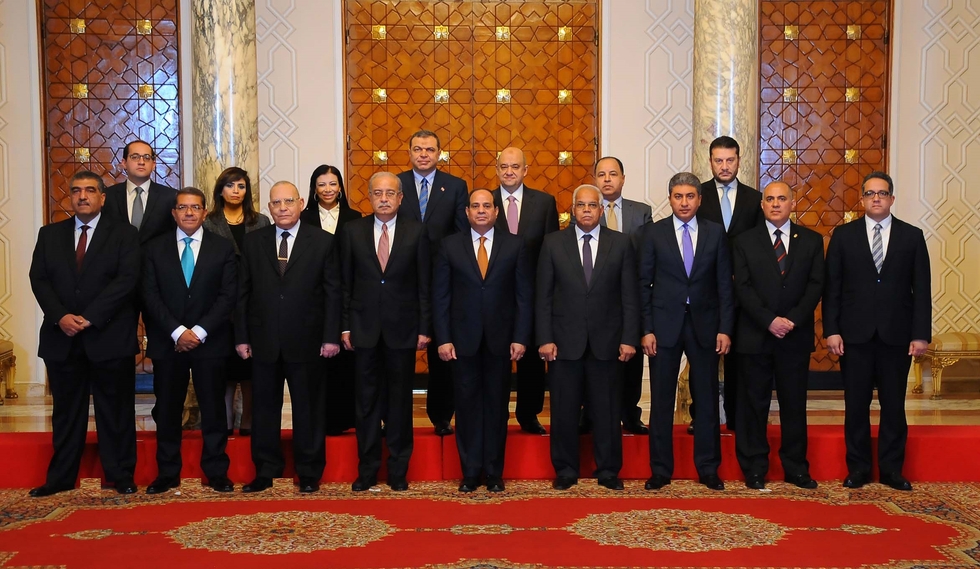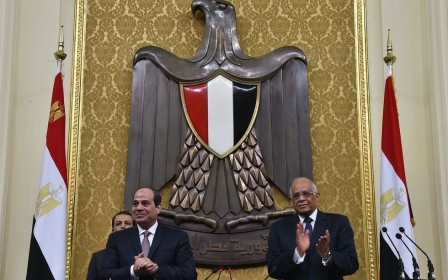Sisi appoints 10 ministers in Egypt cabinet reshuffle

President Abdel Fattah al-Sisi on Wednesday swore in 10 new ministers in a cabinet reshuffle, as Egypt struggles to revive an economy battered by falling tourism revenues and foreign investments.
The reshuffle - mainly of economic portfolios - comes just six months after Sisi inaugurated a new administration led by Sharif Ismail as prime minister, following the resignation of the previous cabinet which was hit by a corruption scandal.
The ministers of tourism, finance, investment, justice, civil aviation, irrigation, human resources, antiquities and transportation were replaced, and a new ministry for the public business sector was added to the cabinet.
The new cabinet consists of 34 ministers and Ismail.
Three deputies were also appointed to the finance minister and one for minister of planning as part of the reshuffle.
Later in a meeting, Sisi called on the new cabinet to "use public funds rationally...and to fight all kinds of corruption" a statement said.
Sharif Ismail stressed that the new ministers and deputy ministers have pledged to work tirelessly and to coordinate among each other in order to improve the performance and achievement rates.
Tourism, hit by years of political turmoil since the removal of Hosni Mubarak in 2011, was dealt a body blow after a bomb brought down a Russian airliner over the Sinai Peninsula on 31 October.
All 224 people on board, mostly Russian tourists, were killed in the attack claimed by the militant Islamic State group, which is spearheading an insurgency in the peninsula.
Revenues from tourism slumped 15 percent to $6.1bn in 2015.
The shake-up also comes days after Egypt's central bank devalued the Egyptian pound as it faces an acute shortage of foreign currency inflows.
Egypt's foreign exchange reserves have fallen from more than $36bn in 2010 to about $16bn, despite roughly $20bn given in aid to Cairo by its powerful Gulf allies.
The central bank said last week that the reserves would recover to $25bn by the end of 2016, boosted by "foreign investments and an increase in the competitiveness of the Egyptian economy".
Middle East Eye propose une couverture et une analyse indépendantes et incomparables du Moyen-Orient, de l’Afrique du Nord et d’autres régions du monde. Pour en savoir plus sur la reprise de ce contenu et les frais qui s’appliquent, veuillez remplir ce formulaire [en anglais]. Pour en savoir plus sur MEE, cliquez ici [en anglais].




